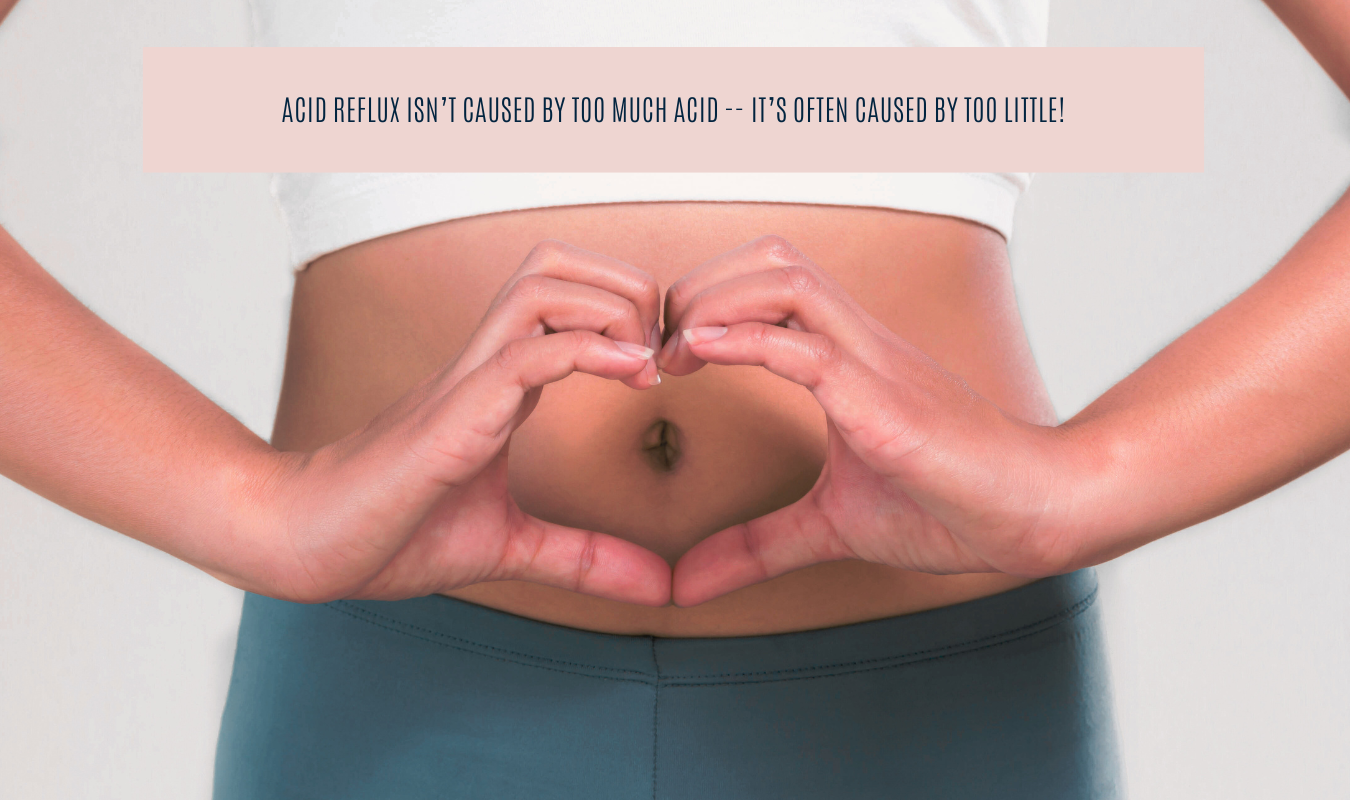The Hidden Cause of Acid Reflux: Why Low Stomach Acid Might Be the Real Problem

When people experience acid reflux, heartburn, or GERD, the common assumption is that they have too much stomach acid. This belief has been widely perpetuated by conventional medicine, leading many to rely on acid-blocking medications such as proton pump inhibitors or antacids for relief. However, these issues are often rooted in the exact opposite problem: low stomach acid (also known as hypochlorhydria).
The Role of Stomach Acid
Stomach acid (hydrochloric acid, or HCl) plays a critical role in digestion. It helps break down food, activates digestive enzymes, facilitates nutrient absorption, and acts as the first line of defense against harmful pathogens. When stomach acid levels are insufficient, digestion becomes compromised, leading to a cascade of digestive dysfunctions.
The Connection Between Low Stomach Acid and Acid Reflux
While it may seem counterintuitive, low stomach acid can actually contribute to acid reflux and GERD. Here’s how:
- Poor Digestion: Without adequate stomach acid, food sits in the stomach longer, leading to fermentation and gas production, which increases intra-abdominal pressure. This pressure can cause the lower esophageal sphincter (LES) to relax inappropriately, allowing stomach contents to reflux into the esophagus.
- Bacterial Overgrowth: Low stomach acid allows harmful bacteria to thrive in the digestive tract, increasing the risk of small intestinal bacterial overgrowth (SIBO) and other digestive disturbances.
- Nutrient Deficiencies: Poor acid production reduces the absorption of key nutrients necessary for maintaining digestive and overall health.
How Low Stomach pH Can Lead to Excessive Stomach Acid
When stomach acid levels are too low, the body may attempt to compensate by overproducing gastrin, a hormone that stimulates acid production. This can lead to an erratic release of stomach acid, creating a cycle of digestive discomfort and reflux. Additionally, when food is not properly broken down due to low acidity, it ferments and produces gas, increasing intra-abdominal pressure and pushing stomach contents back into the esophagus. This can mimic the symptoms of excessive stomach acid, leading to misdiagnosis and the inappropriate use of acid-reducing medications.
The Role of Gastrin in Regulating Stomach pH
Stomach acid levels are regulated by the hormone gastrin, which is produced by G cells in the stomach lining. When the pH of the stomach rises (becomes less acidic) due to low stomach acid, the body responds by releasing more gastrin to stimulate acid production and bring the pH back to its normal range. However, if low stomach acid persists for an extended period, gastrin levels remain elevated, leading to erratic bursts of acid that can worsen reflux symptoms. Then the stomach may become less responsive to gastrin, resulting in weaker acid production over time. Long-term use of acid-suppressing medications can disrupt this feedback loop, causing the body to overproduce gastrin. When these medications are discontinued, it can lead to rebound acid hypersecretion, making symptoms even worse.
This dysregulation of stomach pH and gastrin signaling can create a vicious cycle of poor digestion, reflux, and nutrient malabsorption.
Common Causes of Low Stomach Acid
Several factors can contribute to low stomach acid, including:
- Chronic stress: The body prioritizes survival over digestion, reducing HCl production.
- Poor diet: Diets high in processed foods, sugar, and low in whole foods can impair stomach acid production.
- H. pylori infection: This common bacterial infection can suppress stomach acid production.
- Long-term use of acid-reducing medications: These drugs can contribute to a cycle of dependency and worsening digestive function over time.
- Nutrient deficiencies: Zinc and B vitamins are essential for stomach acid production, and deficiencies can contribute to hypochlorhydria.
How to Naturally Support Stomach Acid Production
Rather than suppressing stomach acid, a root cause approach aims to restore balance and support natural digestive function. Here are some ways to increase stomach acid naturally:
- Eat Mindfully: Slow down, chew food thoroughly, and avoid eating when stressed.
- Incorporate Apple Cider Vinegar: Drinking a diluted solution (1 tablespoon in water) before meals may help stimulate acid production.
- Use Digestive Bitters: Herbal bitters can help stimulate digestive juices and improve stomach acid levels.
- Consider Betaine HCl Supplements: Under the guidance of a practitioner, betaine HCl can help increase stomach acid levels for those with hypochlorhydria.
- Consume Ginger: Ginger has been shown to support gastric motility and digestive function.
- Optimize Nutrient Intake: Ensure adequate zinc, B vitamins, and magnesium to support acid production.
- Manage Stress: Incorporate stress-reducing activities.
- Eliminate Processed Foods: A whole-foods diet supports digestive health and natural acid production.
The Takeaway
If you suffer from chronic heartburn, GERD, or acid reflux, low stomach acid could be the underlying issue rather than excess acid. Addressing the root cause through dietary and lifestyle changes can help restore proper digestion and eliminate the need for long-term acid-suppressing medications. As always, consult with a practitioner before making significant changes to your health regimen.
By shifting the focus from symptom suppression to digestive optimization, we can create lasting relief and improved overall wellness.

